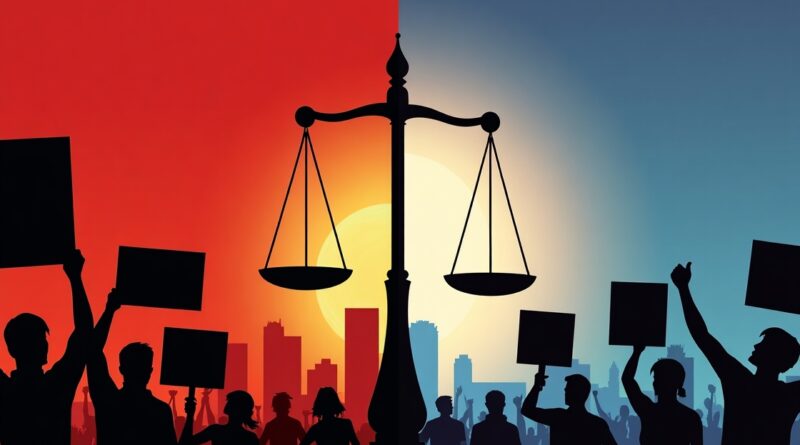The Ethics of Demonstrations from a Socio-Political Perspective
By Dr. Abdul Wadud Nafis, LC., MEI
The ethics of demonstrations from a socio-political perspective is a study of how protest actions are viewed and carried out ethically within the context of the relationship between society and political power. In this regard, ethics not only concerns the behavior of individuals or groups during demonstrations, but also encompasses the moral responsibilities of the state, security forces, and other political actors.
Below is an explanation from both social and political perspectives:
A. Social Perspective
The ethics of demonstrations from a social perspective relates to norms, values, and the general interests of society:
1. The right to express opinions: Demonstrations are part of the freedom of expression guaranteed in a democratic state. Ethically, people have the right to voice their aspirations peacefully.
2. Social responsibility of demonstrators: Ethical protests must take into account the interests of the broader public—for example, not excessively disrupting public services, avoiding the destruction of public property, and refraining from spreading hatred.
3. Solidarity and representation: Social ethics demand that demonstrations not solely serve the egoistic interests of a particular group, but instead fight for issues that are socially relevant and just.
B. Political Perspective
From this perspective, the ethics of demonstrations concern the relationship between citizens and authority, as well as the dynamics of democracy:
1. Political legitimacy of the people: In a democratic system, demonstrations are a mechanism for oversight and correction of power. Ethically, the state should not view demonstrations as a threat but as a legitimate part of the political process.
2. Role of the state and security forces: The state is responsible for maintaining security, but it is unethical to use excessive force. Repression of peaceful demonstrations constitutes a violation of political ethics.
3. Political manipulation: It is unethical for demonstrations to be driven by the interests of political elites who disguise personal agendas as public issues (mass mobilization without clear political awareness).
C. Ethical Principles in Demonstrations
Several key ethical principles in protest actions include:
1. Non-violence: Demonstrations should be conducted peacefully and non-provocatively.
2. Transparency of objectives: Demands must be clear, honest, and not manipulative.
3. Accountability: Participants must take responsibility for the impact of their actions.
4. Equality: Demonstrations should not discriminate against others in voicing their aspirations
Conclusion
The ethics of demonstrations from a socio-political perspective require a balance between the right to protest, social responsibility, and ethical conduct from the state and its apparatus. Ethical demonstrations must uphold the values of justice, peace, conscious participation, and mature political awareness.
References
1. Habermas, Jürgen. The Structural Transformation of the Public Sphere: An Inquiry into a Category of Bourgeois Society. Cambridge: MIT Press, 1989.
2. Rawls, John. Political Liberalism. New York: Columbia University Press, 1993.
3. Arendt, Hannah. On Revolution. New York: Penguin Books, 2006.
4. Cottle, Simon. “Media and the Arab Uprisings of 2011: Research Notes.” Journalism, vol. 12, no. 5, 2011, pp. 647–659.
5. Herlambang, Wahyu. Kekerasan Budaya Pasca Orde Baru. Yogyakarta: Marjin Kiri, 2013.
6. Mahfud MD. Politik Hukum di Indonesia. Jakarta: Rajawali Pers, 2009.
7. The 1945 Constitution of the Republic of Indonesia.
8. Law No. 9 of 1998 on the Freedom to Express Opinions in Public.
9. Komnas HAM. Human Rights Guidelines for Peaceful Demonstrations. Jakarta: Komnas HAM, 2020.
10. Haryatmoko. Etika Politik dan Kekuasaan. Jakarta: Gramedia Pustaka Utama, 2016.

